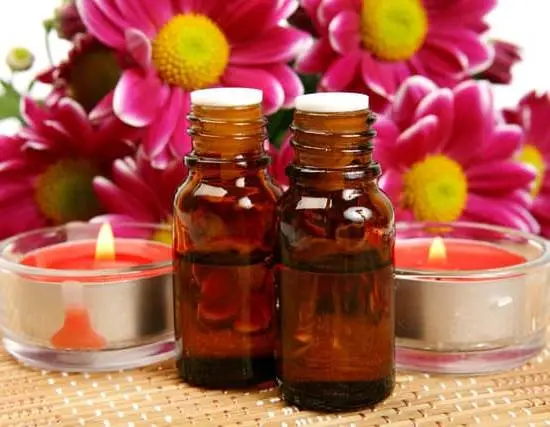Lemongrass aromatherapy has been gaining attention for its potential health benefits and therapeutic properties. From reducing stress and anxiety to relieving headaches and improving digestive health, lemongrass essential oil is a powerful tool in natural healing. This article provides an in-depth exploration of the origins, methods, and evidence-based benefits of lemongrass aromatherapy.
Lemongrass aromatherapy involves the use of lemongrass essential oil, derived from the leaves of the lemongrass plant through a process of steam distillation. The resulting oil carries a refreshing citrus scent with earthy undertones, making it a popular choice for aromatherapy practices. Its characteristic aroma also possesses unique medicinal properties that contribute to its various health benefits.
With a history deeply rooted in traditional medicine systems such as Ayurveda and Traditional Chinese Medicine (TCM), lemongrass aromatherapy has been used for centuries across different cultures for its healing effects. As we delve into the history and origins of lemongrass aromatherapy, we will uncover the rich tapestry of its use in ancient wellness practices and how it continues to be valued today for its therapeutic potential.
What Is Lemongrass Aromatherapy?
Lemongrass aromatherapy is a natural and holistic approach to improving one’s physical, mental, and emotional well-being. It involves the use of essential oils extracted from the lemongrass plant, scientifically known as Cymbopogon citratus, to promote various health benefits. This form of aromatherapy has been utilized for centuries in different cultures for its soothing and healing properties.
Benefits of Lemongrass Aromatherapy
When it comes to the health benefits of lemongrass aromatherapy, the advantages are wide-ranging. Some of the key benefits include:
- Stress relief: Lemongrass essential oil is known for its calming and stress-reducing properties. Inhaling the aroma can help alleviate feelings of anxiety and promote relaxation.
- Improved digestion: The use of lemongrass oil in aromatherapy may aid in digestion and relieve symptoms such as bloating, indigestion, and stomach cramps.
- Pain relief: Lemongrass aromatherapy has been linked to reducing pain and inflammation. It can be particularly beneficial for those suffering from muscle aches or joint pain.
Utilizing Lemongrass Aromatherapy
There are several methods for practicing lemongrass aromatherapy, including:
- Diffusion: Using a diffuser to disperse the aroma throughout a room.
- Inhalation: Directly inhaling the fragrance from a few drops of lemongrass essential oil on a cloth or tissue.
- Massage: Diluting lemongrass oil with a carrier oil and applying it during massage therapy.
Ultimately, lemongrass aromatherapy offers a natural alternative for promoting overall wellness and vitality through gentle yet effective means.
The History and Origins of Lemongrass Aromatherapy
Lemongrass aromatherapy has been utilized for centuries due to its potential health benefits. The use of lemongrass as a therapeutic aromatic herb can be traced back to ancient cultures in Asia and Africa. In traditional medicine, lemongrass was often used to alleviate various ailments and promote overall well-being. The distinct citrusy scent of lemongrass essential oil makes it a popular choice for aromatherapy practices.
The origins of lemongrass aromatherapy can be traced back to India, where it was commonly used in Ayurvedic medicine for its medicinal properties. It was believed to have potent antibacterial and antifungal properties, making it a valuable treatment for infections and skin conditions. Over time, the use of lemongrass spread to other parts of Asia, where it became an integral part of traditional Chinese medicine and Thai herbal remedies.
In addition to its historical use in Asian cultures, lemongrass also found its way into African traditional medicine practices. In regions such as Nigeria and Ghana, lemongrass has been used for its refreshing aroma and therapeutic benefits. Its use in rituals and ceremonies also contributed to its prominence in African culture. As the popularity of aromatherapy continues to grow globally, the rich history and origins of lemongrass aromatherapy serve as a testament to its enduring appeal and potential health benefits.
- India: Ayurvedic medicine
- China: Traditional Chinese medicine
- Thailand: Thai herbal remedies
- Nigeria and Ghana: African traditional medicine practices
Understanding the Health Benefits of Lemongrass Aromatherapy
Lemongrass aromatherapy is a holistic healing practice that harnesses the natural therapeutic properties of lemongrass essential oil. This type of aromatherapy has been used for centuries in traditional medicine and is known for its various health benefits. The distinctive aroma of lemongrass can help promote relaxation, alleviate stress, and improve overall well-being.
Stress Reduction and Relaxation
One of the most well-known health benefits of lemongrass aromatherapy is its ability to reduce stress and promote relaxation. Inhaling the aroma of lemongrass essential oil can help calm the mind, reduce anxiety, and uplift mood. This makes it an effective natural remedy for those looking to relieve daily stress or combat symptoms of anxiety.
Improved Sleep Quality
Lemongrass aromatherapy is also believed to improve sleep quality by promoting a sense of calm and tranquility. Diffusing lemongrass essential oil in the bedroom before bedtime can help create a soothing environment conducive to uninterrupted sleep. Its sedative properties may aid in falling asleep faster and achieving a more restful night’s sleep.
Immune System Support
In addition to its calming effects, lemongrass aromatherapy is also thought to provide immune system support. The antimicrobial and antioxidant properties of lemongrass essential oil may help strengthen the body’s defenses against infections and illnesses. Regular use of lemongrass aromatherapy may contribute to overall wellness by promoting a healthy immune system.
Overall, understanding the health benefits of lemongrass aromatherapy can shed light on its potential as a natural remedy for improving mental, emotional, and physical well-being. With its stress-reducing, sleep-enhancing, and immune-boosting properties, incorporating lemongrass aromatherapy into one’s self-care routine may result in significant improvements in overall health.
How Does Lemongrass Aromatherapy Work?
Lemongrass aromatherapy works through the use of essential oils extracted from the lemongrass plant. These essential oils contain compounds such as citral, geraniol, and citronellal, which are believed to have therapeutic properties. When inhaled, these compounds can have a direct effect on the body and mind, promoting relaxation and overall well-being.
The olfactory system, or sense of smell, plays a crucial role in how lemongrass aromatherapy works. When the aroma of lemongrass essential oil is inhaled, it stimulates the olfactory receptors in the nose, which then send signals to the brain’s limbic system. The limbic system is responsible for emotions, behaviors, and long-term memory. This interaction with the limbic system is why aromatherapy is often used for mood enhancement and stress relief.
In addition to its effect on the limbic system, lemongrass essential oil also has antibacterial and antifungal properties when used in aromatherapy. When diffused into the air or applied topically (with carrier oil), it can help purify the air and protect against harmful bacteria and fungi that may cause illness or discomfort. Overall, lemongrass aromatherapy works by engaging both the olfactory and immune systems to promote physical and mental health.
Different Ways to Practice Lemongrass Aromatherapy (Diffusers, Inhalation, Massage, Etc)
Lemongrass aromatherapy can be practiced in various ways, each offering its own unique benefits and appeal. One of the most popular methods is through the use of diffusers. Diffusers work by dispersing the essential oil of lemongrass into the air, allowing it to be inhaled and absorbed by the body. This method not only fills the room with a pleasant aroma but also promotes relaxation and mental clarity.
Inhalation is another common way to practice lemongrass aromatherapy. Simply adding a few drops of lemongrass essential oil to a bowl of steaming water and inhaling the steam can help alleviate sinus congestion, reduce stress, and improve overall respiratory health. Some people also choose to add a few drops of lemongrass oil to their bathwater for a soothing and aromatic experience.
Additionally, massage with lemongrass essential oil is a popular practice for promoting muscle relaxation, relieving pain, and improving circulation. When mixed with a carrier oil such as coconut or jojoba oil, lemongrass essential oil can be applied topically during a massage to reap its health benefits while also enjoying its invigorating scent.
These different methods offer individuals versatility in how they choose to incorporate lemongrass aromatherapy into their wellness routines and highlight the wide range of benefits that this practice can offer for overall health and well-being.
| Lemongrass Aromatherapy Method | Benefits |
|---|---|
| Diffusers | Promotes relaxation and mental clarity |
| Inhalation | Alleviates sinus congestion, reduces stress, improves respiratory health |
| Massage | Promotes muscle relaxation, relieves pain, improves circulation |
Scientific Evidence Supporting the Health Benefits of Lemongrass Aromatherapy
Lemongrass aromatherapy has been used for centuries, and many people believe in its ability to improve health and well-being. Scientific evidence also supports the various health benefits of lemongrass aromatherapy. Researchers have conducted numerous studies to understand the impact of lemongrass essential oil on the human body, leading to promising findings.
One of the key health benefits of lemongrass aromatherapy is its potential to reduce stress and anxiety. A study published in the Journal of Alternative and Complementary Medicine found that inhalation of lemongrass essential oil led to a significant reduction in anxiety levels among participants. This suggests that incorporating lemongrass aromatherapy into daily routines can be an effective way to manage stress.
Furthermore, lemongrass aromatherapy has been shown to have antimicrobial and anti-inflammatory properties. Research conducted at the Department of Microbiology at Jawaharlal Nehru Medical College found that lemongrass essential oil exhibited strong antimicrobial activity against a variety of harmful microorganisms. Additionally, its anti-inflammatory effects make it a potential natural remedy for conditions such as rheumatism and arthritis.
| Benefits | Evidence |
|---|---|
| Reduction in Stress and Anxiety | Journal of Alternative and Complementary Medicine study |
| Antimicrobial Properties | Department of Microbiology at Jawaharlal Nehru Medical College research |
| Anti-Inflammatory Effects | Potential natural remedy for conditions such as rheumatism and arthritis. |
Precautions and Considerations for Using Lemongrass Aromatherapy
Lemongrass aromatherapy is generally safe for most people when used properly, but like any essential oil, there are some precautions and considerations to keep in mind. It is important to be aware of potential risks and to use lemongrass aromatherapy responsibly.
Dilution
One of the most important considerations when using lemongrass essential oil for aromatherapy is proper dilution. Undiluted essential oils can be too strong and may cause skin irritation or allergic reactions. It is recommended to dilute lemongrass essential oil with a carrier oil, such as coconut oil or almond oil, before applying it to the skin.
Allergies and Sensitivities
Individuals with known allergies or sensitivities to citronella or other essential oils may also be sensitive to lemongrass essential oil. It is advisable to perform a patch test before using lemongrass aromatherapy on a larger area of the skin. If any irritation occurs, discontinue use immediately.
Sun Sensitivity
Lemongrass essential oil has been known to cause photosensitivity in some individuals, which means it can make the skin more sensitive to sunlight. It is best to avoid sun exposure for at least 12 hours after applying lemongrass essential oil topically. This precaution can help prevent sunburn or skin damage.
It’s always a good idea to consult with a healthcare professional before using lemongrass aromatherapy, especially for pregnant women, nursing mothers, children, and individuals with underlying health conditions. By being mindful of these precautions and considerations, you can safely enjoy the health benefits of lemongrass aromatherapy.
Conclusion
In conclusion, lemongrass aromatherapy has a long history of use in traditional medicine and has been found to offer numerous health benefits. From reducing stress and anxiety to relieving pain and boosting immunity, the essential oil derived from lemongrass is a powerful tool for improving overall well-being. Scientific evidence supports the efficacy of lemongrass aromatherapy, making it a viable option for those seeking natural and alternative methods for promoting health.
With various ways to practice lemongrass aromatherapy such as using diffusers, inhalation, or massage, individuals have the flexibility to incorporate it into their daily lives in a way that suits their preferences. The versatility of this form of therapy makes it accessible to a wide range of people, whether they are looking to address specific health concerns or simply enhance their mental and emotional state.
It is important to note that while lemongrass aromatherapy can be highly beneficial, precautions should be taken when using essential oils. Dilution and moderation are key factors to ensure safety and effectiveness. Overall, harnessing the healing powers of lemongrass aromatherapy can lead to an improved quality of life through better physical, mental, and emotional health. So why not give it a try and experience the benefits for yourself?
Frequently Asked Questions
What Does Lemongrass Aromatherapy Do?
Lemongrass aromatherapy is known for its calming and relaxing effects on the mind and body. The refreshing citrus scent can help reduce stress, anxiety, and promote a sense of well-being.
What Are the Health Benefits of Inhaling Lemongrass?
Inhaling lemongrass can have various health benefits, including relieving headaches, reducing inflammation, and easing digestive issues. It is also believed to boost the immune system and help with insomnia or sleep disorders.
What Does Lemongrass Do to the Brain?
Lemongrass has been shown to have a positive impact on the brain by improving cognitive function, memory, and mental clarity. The aroma of lemongrass can also have mood-boosting effects and help combat feelings of depression or fatigue.

Are you looking for a natural way to improve your health and wellbeing?
If so, aromatherapy may be the answer for you.





